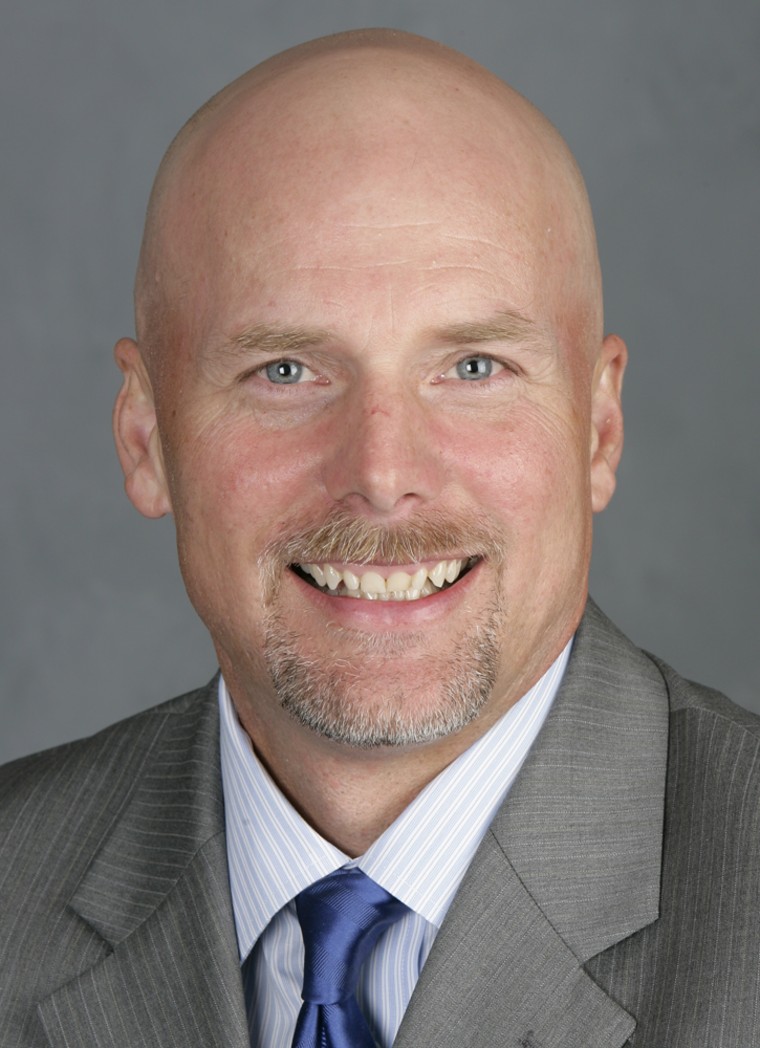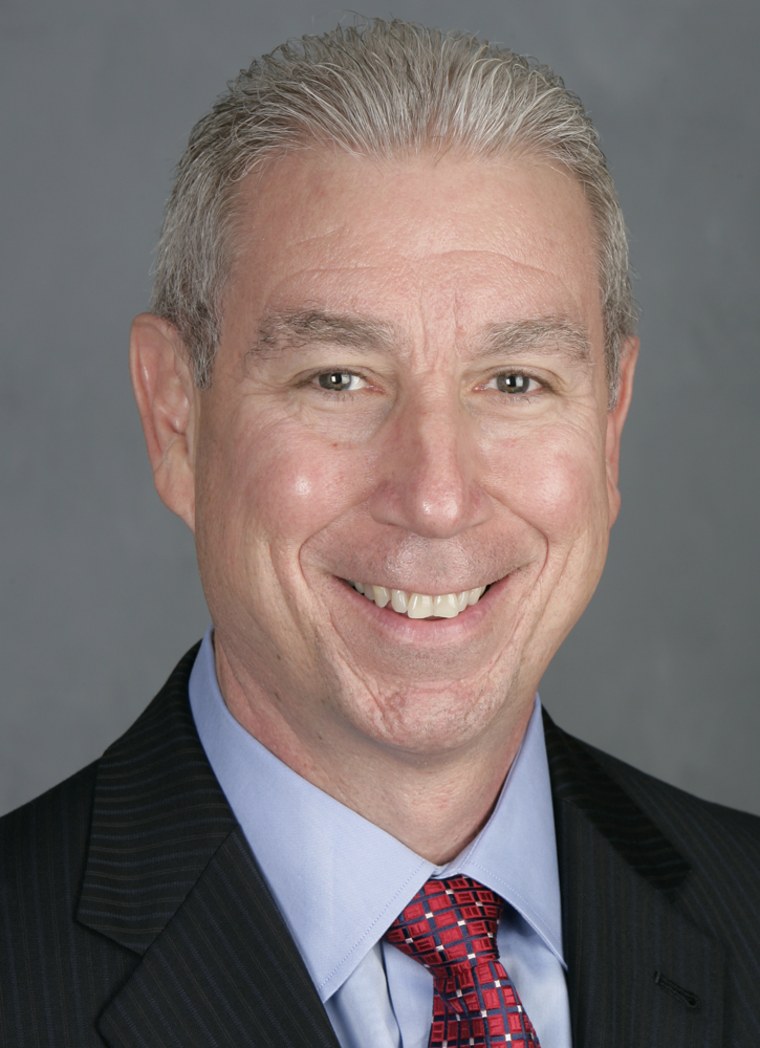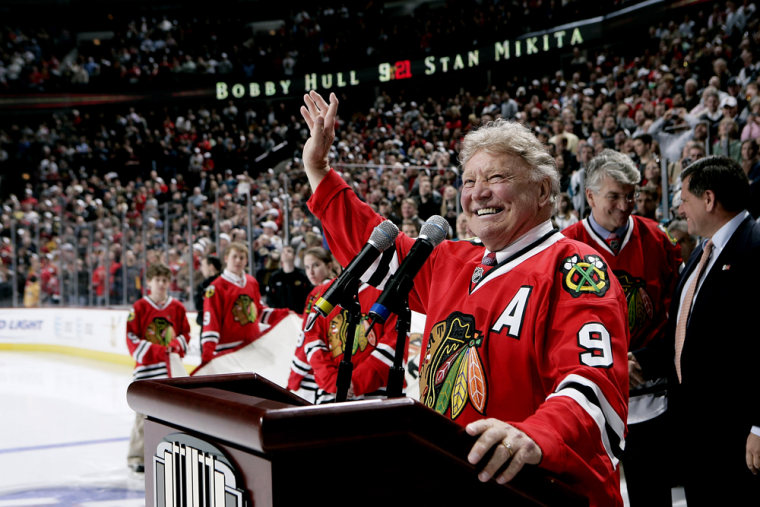Only a few days into his job as president of the Chicago Blackhawks, John McDonough invited over a 68-year-old who previously had been shunned by the franchise for decades: Bobby Hull.
For 90 minutes last November, McDonough listened while The Golden Jet – arguably the most exciting player in Blackhawk history until he fled to the upstart World Hockey Association in 1972 – seethed with resentment over his estrangement from the team.
McDonough asked Hull to consider coming back. Calling the Hall of Famer after the visit, McDonough heard the answer he hoped for: Hull wanted to be a Blackhawk again.
"That was the first step in righting the ship," said McDonough.
Since then, the Blackhawks have made off-the-ice progress as explosive as a Hull slap shot. Teams have gone from worst to first in the NHL standings, to be sure. But few, if any, have accomplished the trick on the marketing side – until the success of this Original Six franchise.
Moves have been rapid-fire. This summer, competing for attention amid two first-place baseball teams, they hosted the first fan convention by any NHL team – and not only welcomed 8,000 fans but found themselves splashed across the Chicago Tribune’s front sports page. Last month, the team celebrated the opening of training camp with a first-time festival outside the United Center, complete with a 3-on-3 hockey tournament and the presence of nearly 6,000 fans. This season (again for the first time) the Blackhawks will have a presenting sponsor, CBOE.

Said Jay Blunk, senior vice president of business operations who started soon after McDonough: "We made a decision when we got here we had to be bold and innovative. We had to take risks."
The surging interest has paid off at the ticket window. The Blackhawks didn’t make the playoffs last year and have notched a total of one postseason win this century. Opening night last year, the season ticket base stood at a sickly 3,400 in the country’s third-largest market: today, it’s around 13,500, a franchise record.
How did this all happen so quickly? The Wirtz family has run the franchise since 1954. After Arthur Wirtz died in 1983, son Bill took over the team. His reign was marked by the continuation of a policy not to televise home games and the move to the staid, if luxury-suite friendly, United Center from raucous Chicago Stadium.
As the team’s fortunes dove in the 1990s and into this decade, a backlash ensued. Tired of a lack of spending on free agents despite all the luxury suite revenue and angered by management’s inept policies, one of the most loyal fan bases in all of sports shunned the Blackhawks.
Then Bill Wirtz died last fall. His son Rocky took over and immediately reversed course, airing a number of home games last year. This season, all 40 will be televised.

Both McDonough and Blunk were lured from their executive posts at the cross-town Cubs — where, as McDonough put it, “I didn’t see an empty seat for 24 years.” They realize the importance of staying with one broadcast partner; the Cubs have been televised on WGN for about 60 years, and Hawks’ games have now found a home there too. Having watched first-hand the popularity of late announcer Harry Caray, they made sure Pat Foley — a mainstay for a quarter century until the old regime got rid of him — returned to the microphone.
And, in a move as unthinkable a year ago as all the rest, the Blackhawks brass convinced the NHL to hold its second Winter Classic in Chicago Jan. 1 at a spot McDonough and Blunk know well: Wrigley Field.
"That game (against archrival Detroit) has the chance to change the DNA of the Blackhawks for this generation," Blunk said. "Will it make up for two generations of kids we missed? That’s a question mark."
Amid all this, the team looks promising, and a playoff berth is expected come spring. Two rookies, Patrick Kane and Jonathan Toews, captured the city’s imagination last winter. The Hawks bulked up in the offseason, signing free agent defenseman Brian Campbell to a hefty contract.
But despite a new generation of players, it’s hard to underestimate the return of old stars like Hull, Stan Mikita, Tony Esposito and others whose play lifted fans out of their seats in the 1960s and 1970s. Aside from the ability to market partial season ticket packages around their retired numbers (such as the 9-game Bobby Hull plan) they have been honored during tear-jerking nights at the United Center and are embraced by the public during appearances.
Going forward, the key is building on the momentum. No one is more aware of that than McDonough.
"This isn’t going to be a one and done, a comet that passed through Chicago for a year," he said.
No, he wants the comet to stay — just like The Golden Jet, finally home after all these years.
